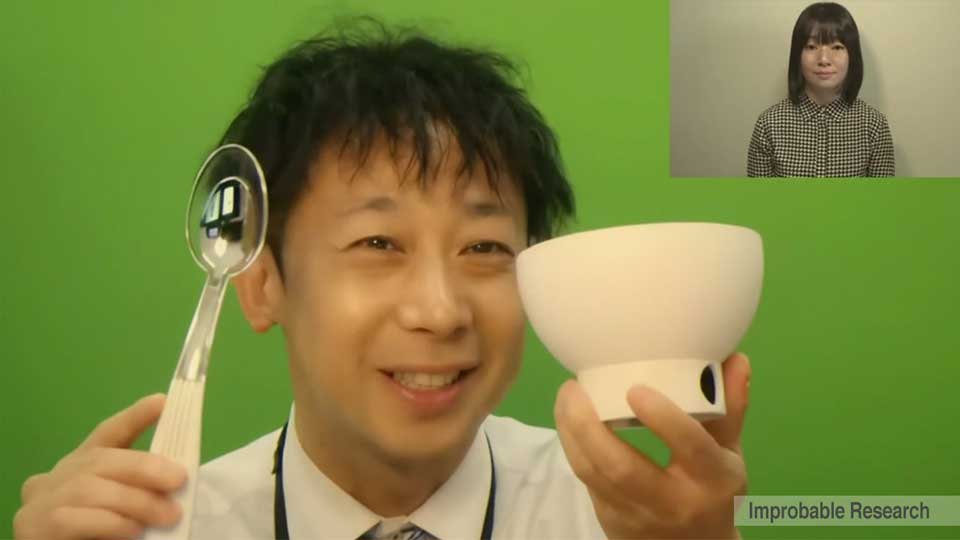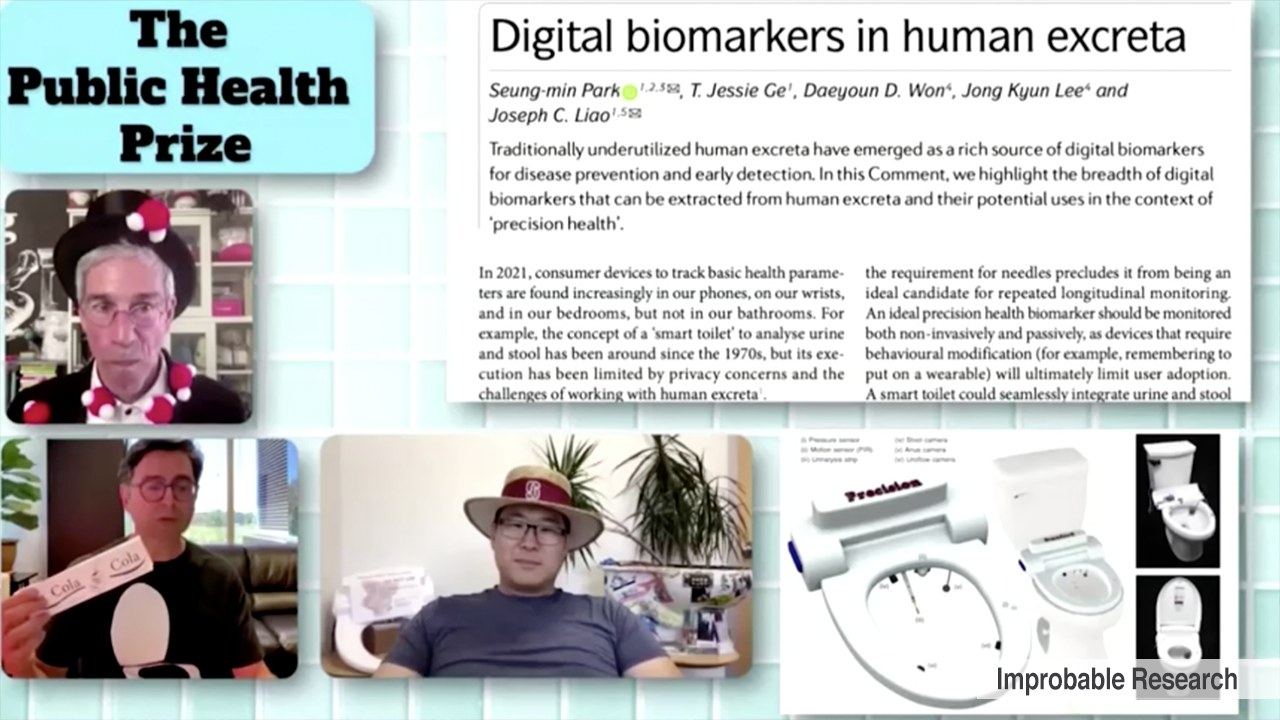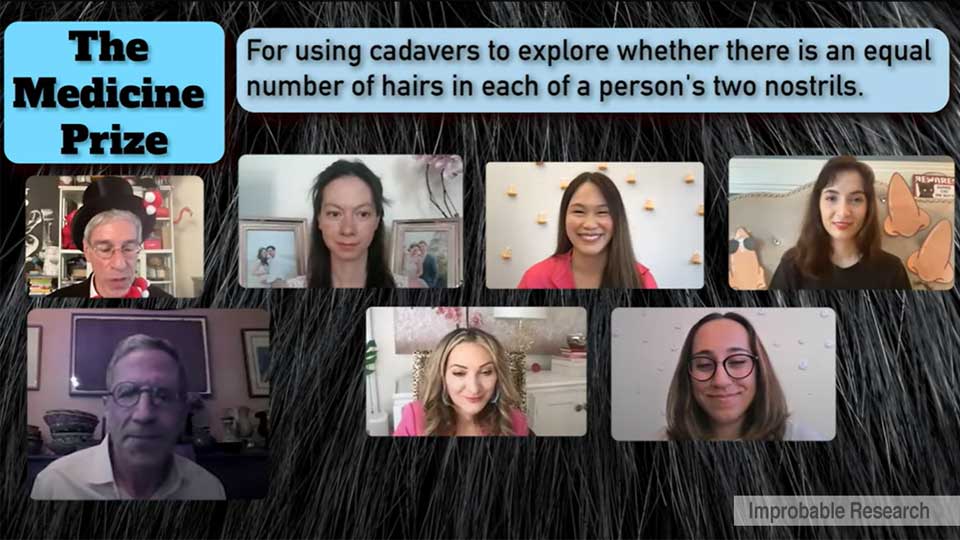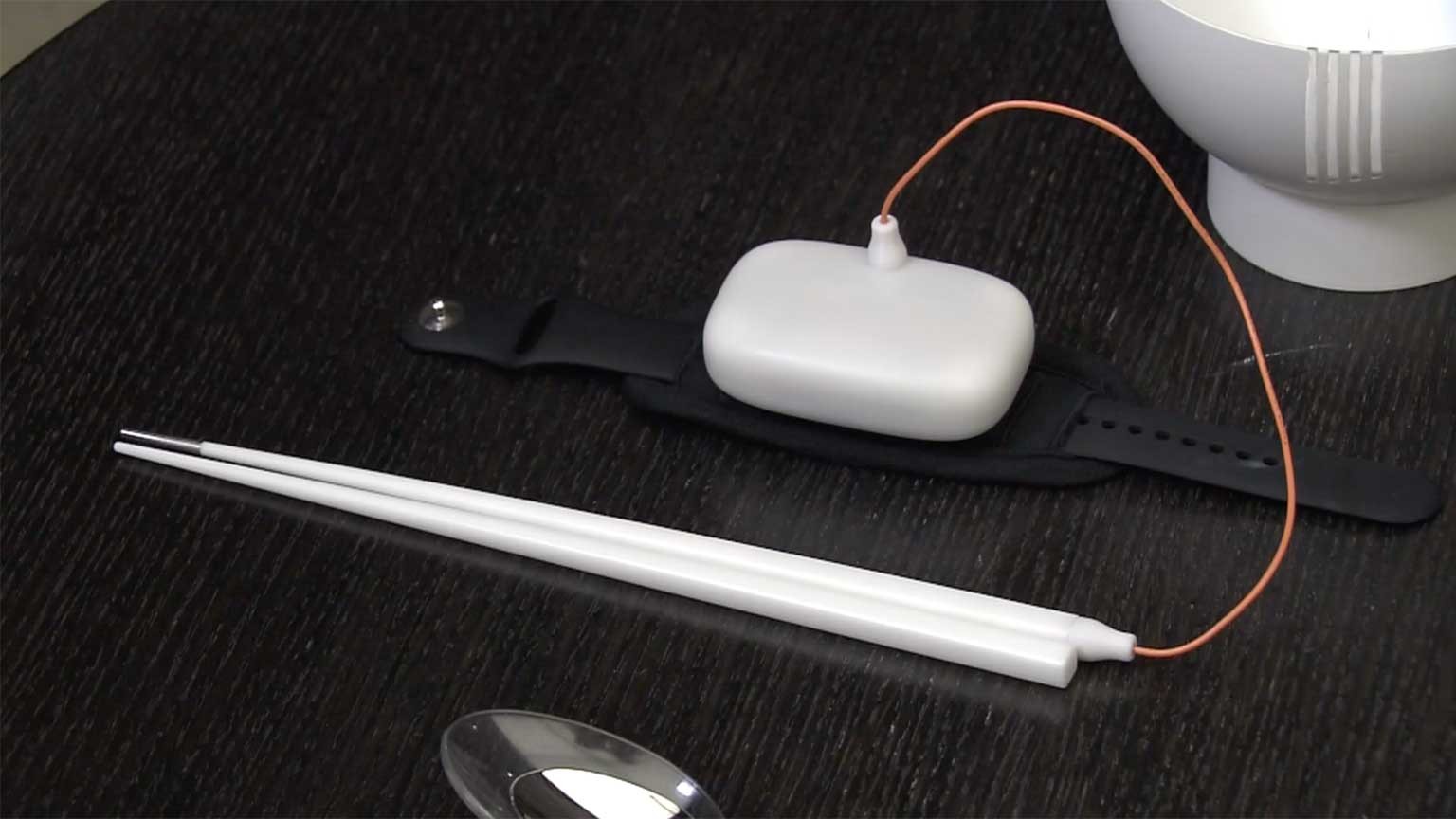Meiji University professor Miyashita Homei and University of Tokyo associate professor Nakamura Hiromi won this year's prize for nutrition.
"The purpose of this paper is to use electrical stimulation for augmenting taste in eating and drinking," Nakamura said at Thursday's online award ceremony.
"Our approach can assist us in balancing our wellness and health. The reason is that electric taste is a taste with no nutritional value," she added.
Miyashita contends that food with low salt content is healthier but doesn't necessarily taste good. He believes this new technology can enhance that salty taste.
The team developed electrified chopsticks and drinking straws about 10 years ago to study how electrical stimulation of the tongue can change the taste of food. Their experiments led to the development of tableware that creates the illusion of saltier food.
This is the 17th straight year that Japanese researchers have won an Ig Nobel prize.

Prizes for research that makes people laugh and think
The Ig Nobel awards, inaugurated in 1991 by a US science journal, are a parody of the Nobel Prize. They annually celebrate improbable research that "makes people laugh, then think."
The judges awarded 10 prizes in a variety of categories.
Among the winners was Jan Zalasiewicz of Poland, who earned the chemistry and geology prize for explaining why many scientists like to lick rocks.
The public health prize went to a Stanford University researcher in the US for inventing a toilet that monitors human waste for signs of disease.

The literature prize went to a team from France, the UK, Malaysia and Finland for their research on a phenomenon that can occur when a word is repeated "many, many, many, many, many, many, many times."
A group of researchers took the prize for medicine for examining people's nostrils to see if they contain an equal number of hairs.

And a US group scooped the psychology prize for their experiments on a city street to see how many passersby stop to look upward when they see others doing so.
